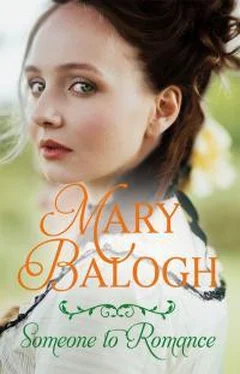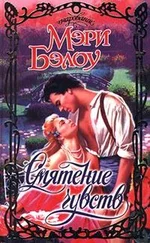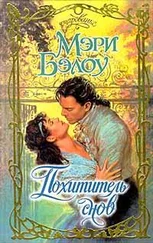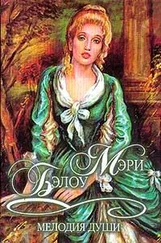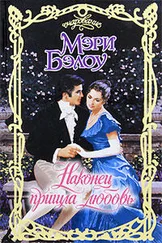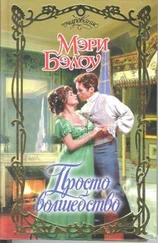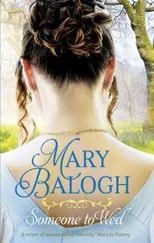“Miss Beck, of course. But you have perhaps forgotten,” Netherby said, “that the groom who took the wounded young fawn to her remained there for most of the time she and you were setting its broken leg. He is still employed at Brierley.”
“Ah,” Gabriel said, trying to remember. But yes, he seemed to recall that the young groom had been too squeamish to watch but too concerned to go away. He had hovered outside the cottage until the deed was done. “My man fell a bit short on that one, Netherby. Yours apparently did not. But yes. That is quite right. I had forgotten.”
“What we need now,” Aunt Matilda said, “is a plan. Our house, tomorrow afternoon. You will not mind, Charles?”
“Not at all, my love,” he said with great good humor, “provided you do not require my presence. In my experience plans are better left with the ladies.”
“Wise man,” Elizabeth said, twinkling at him. “I will be there, Cousin Matilda. So will Mama.”
“I will indeed,” Cousin Althea said.
“Another toast,” Riverdale said, getting to his feet and raising his glass. “To the Earl and Countess of Lyndale’s remaining in London for a while longer.”
There was a prolonged clinking of glasses and a chorus of voices.
“Jessica,” Gabriel said soon after that, “shall we be the first to leave? With many thanks to everyone who has made this such an unexpectedly festive day, considering the fact that we had decided upon a quiet wedding.”
She set her hand in his and got to her feet. “Yes, thank you all,” she said. “And now, if you will excuse me, I am about to get a little emotional.”
Gabriel tightened his grip on her hand and led her from the room while Netherby, with the mere lifting of one eyebrow and one finger, sent a servant scurrying to call up their carriage—minus all the flowers and all the hardware, Gabriel hoped, for the short journey to his hotel.
Jessica was a bit teary eyed, as she had warned. But he did not believe they were unhappy tears. He hoped not. All their wedding guests streamed out of the dining room after them to wave them on their way. It did not help her composure.
It had been an eventful wedding day. And it was not over yet.
Seventeen
The carriage Gabriel had purchased for his wedding day and the journey to Brierley Hall had indeed been denuded of its floral decorations and metallic noisemakers before it left Archer House. Even the remaining traces of the flower petals with which he and Jessica had been showered outside the church had been thoroughly removed. Those facts saved them from attracting undue attention on their way to his hotel. They did not, however, save them from a grand reception at the hotel itself, where Gabriel had been putting up since his arrival in London.
He had informed the manager that Mrs. Thorne would be joining him to spend the night here. Perhaps that bare announcement had raised an alarm, for during the weeks of his stay he had given no indication that he was a married man. Perhaps the manager, who had bowed to him with the utmost respect this morning, had feared that the hotel was about to fall into disrepute. Whatever the reason, he or his minions had done some swift research and had come up with the astonishing news that Mr. Thorne, a wealthy gentleman late of Boston, America, had that very day married the sister of no less a personage than His Grace, the Duke of Netherby.
The red carpet was out. Literally. It had been rolled down over the wide, shallow steps outside the main doors and across the pavement. It was in such pristine condition when Gabriel’s carriage rocked to a halt at the curb beside it that it seemed probable no other guest had been allowed to set foot on it but had been put to the inconvenience of using a side door.
The ornate brass handles on the outer doors had been polished until they rivaled gold in brightness. The manager and footmen, whose jobs respectively were to register newly arrived guests and carry in their baggage, were suddenly resplendent in uniforms so stiff and spotless that they must be reserved for the most special and rare of occasions. The owner of the hotel, who looked as if he had dressed for an audience at court, stepped out through the doors and executed a bow that would not have shamed him had he been making it to the Prince of Wales himself. As soon as the newly arrived guests had stepped down from their carriage, he delivered a brief, pompous speech, which had been either written inaccurately or memorized poorly. He welcomed to his humble hotel Lady Jessica Archer and Mr. Archer. With one practiced sweep of his arm he invited them to step inside.
And there in the gleaming foyer waited two straight lines of hotel employees, also clad in their special-occasion best, smiling and, at a cue from the manager, applauding. At another cue, the clapping stopped abruptly, the men bowed, and the women curtsied.
They must have spent all day rehearsing, Gabriel thought. They would have done a military parade proud—except for the smiles. He ought to have taken a suite at the Pulteney instead of at this perfectly comfortable but obviously second-tier hotel. At the Pulteney they must be accustomed to the aristocracy and foreign dignitaries flitting in and out. There would have been no fuss or fanfare at all there but, if anything, an even greater discretion than usual to preserve the privacy of their guests.
For the first time Gabriel saw the results of his careful reasoning about the choice of a bride. He had thought to choose someone who would fit into the role of Countess of Lyndale at Brierley as a hand would fit into a glove. He had chosen Jessica within half an hour of his first encounter with her. At the time it had not occurred to him that she would also ease his way back into his London hotel on his wedding day.
She had sat beside him in the carriage on the short journey from Archer House, her hand in his, her cheeks flushed, her eyes bright as the two of them looked back over the past few hours and commented upon several details they had found particularly memorable or touching. She had been Jessica.
But the moment the carriage door was opened outside the hotel and she summed up the situation at a glance, she became a different person—the one he had met at that inn on the road to London. She became the haughty yet gracious daughter of a duke that she was. She became Lady Jessica Thorne, Countess of Lyndale.
She waited for Gabriel to alight first and then set her hand in his and descended to the red carpet with regal grace. She ignored the two footmen who stood on either side of the carpet—it was, Gabriel realized, a serious faux pas to acknowledge their existence, as he did with a brisk nod for each—and ascended the steps as the owner delivered his speech. She afforded him a gracious inclination of the head and a murmured thank-you—similar to the one she had given Gabriel on their first encounter—while she offered her hand at the end of a fully extended arm to discourage the man from moving any closer. Then she swept inside while Gabriel was giving the owner a more conventional—and less aristocratic—handshake.
The applauding lines of servants did not throw her off stride for a single moment. She stopped walking, waited for the performance to come to an end, and smiled down the length of her nose while she looked unhurriedly along the women’s line and back along the men’s before nodding to both lines and speaking.
“Thank you,” she said. “What a lovely welcome.”
And to a man—and woman—they almost melted with pleasure at her words, all six of them. They could not have looked more gratified had she presented each of them with a gift.
And she looked unerringly toward the manager, who jumped forward, bowed, indicated the wide staircase with a sweeping arm gesture, and then led the way up to Gabriel’s suite as though he would not be able to find it unassisted. Gabriel meanwhile nodded and smiled at the employees, most of whom looked familiar to him by now, and followed his wife.
Читать дальше
